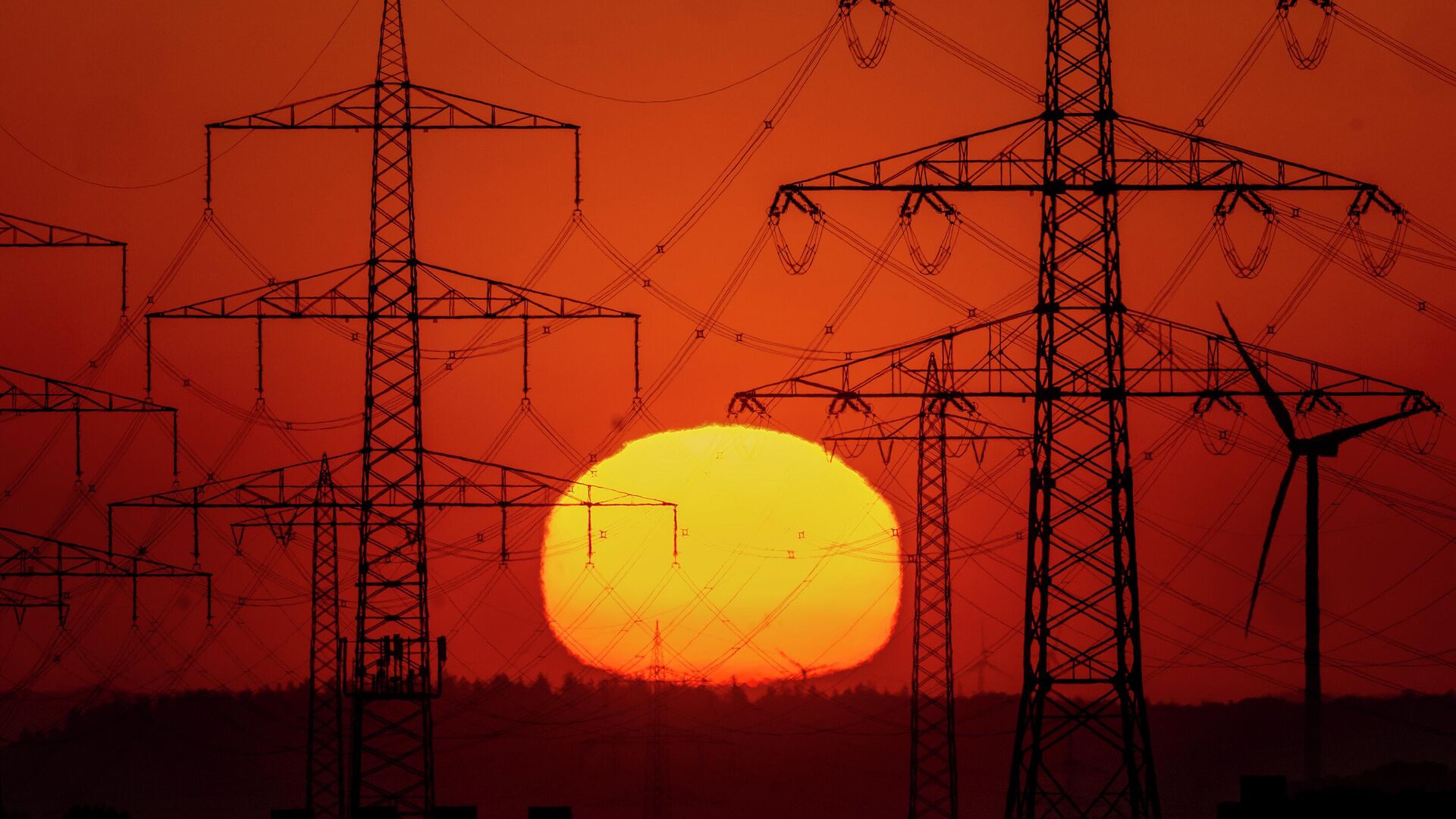https://sputnikglobe.com/20221018/details-on-long-term-power-deal-between-kenya-ethiopia-disclosed-1101994203.html
Details on Long-Term Power Deal Between Kenya, Ethiopia Disclosed
Details on Long-Term Power Deal Between Kenya, Ethiopia Disclosed
Sputnik International
At the end of July, Kenya and Ethiopia signed a 25-year energy deal that will come into effect on November 1. The deal is expected to replace expensive... 18.10.2022, Sputnik International
2022-10-18T12:45+0000
2022-10-18T12:45+0000
2022-11-23T11:36+0000
africa
kenya
ethiopia
electricity
agreement
electricity supply
east africa
https://cdn1.img.sputnikglobe.com/img/07e6/0a/12/1102008979_0:203:2921:1846_1920x0_80_0_0_c328ce707b1418e204b06e724847fbf0.jpg
Ethiopian Electric Power (EEP) has revealed a clause in the power purchase agreement with Kenya that says contract terms can only be altered in five years from now, The East African reports.According to the agreement, Kenya will buy power from Ethiopia at 6.5 US cents per kilowatt for five years before the contract terms can be renegotiated.Under the agreement, during the first three years Kenya is expected to “get a maximum firm capacity of 200 megawatts (MW) and thereafter a maximum firm capacity of 400 MW for the remainder of the 25-year PPA,” Kenya Power and Lighting Company, which owns and operates most of the electricity transmission and distribution in the country, explained in July.EEP will be the second biggest power supplier in Kenya after the Kenya Electricity Generating Company (KenGen), whose contracted capacity is 600MW.Renegotiating lower tariffs with their Ethiopian partners could reduce the electricity prices in Kenya, which is possible only in 2027, according to the contract. Meanwhile, Kenyan authorities are trying to tackle the issue of growing energy costs in order to prevent a decline in the standard of living in the country against the backdrop of inflation. Growing energy prices push up the cost of electricity production, which makes consumer goods more expensive. As a result, households are forced to pay more for the same amount of electricity units during the month.In January, Kenya Power made its first 15 percent cut in power charges, which allowed electricity bills to be cut for both businesses and households. A second 15 percent cut was also planned for this year, but it couldn't be implemented due to a failure to agree with power producers to decrease the wholesale tariffs.Last month, electricity prices in Kenya grew by 15.7%, which means the January cuts were effectively reversed.Meanwhile, the increase in electricity prices together with soaring fuel costs caused by the ongoing global energy crisis has hit consumers with double force.In turn, Ethiopia's Ministry of Finance argued, as cited by ESI Africa, that the power deal will provide access to reliable and affordable energy to between 870,000 and 1.4 million Kenyan households, 18% of which are located in villages. As for Ethiopia, the power deal is expected to increase the country's annual energy exports. Currently, Ethiopia delivers electric power to Sudan and Djibouti.
https://sputnikglobe.com/20220915/imf-forces-kenya-to-end-fuel-subsidies-driving-prices-up-as-hustler-champion-ruto-takes-office-1100832537.html
africa
kenya
ethiopia
east africa
Sputnik International
feedback@sputniknews.com
+74956456601
MIA „Rossiya Segodnya“
2022
News
en_EN
Sputnik International
feedback@sputniknews.com
+74956456601
MIA „Rossiya Segodnya“
Sputnik International
feedback@sputniknews.com
+74956456601
MIA „Rossiya Segodnya“
kenya, ethiopia, electricity, agreement, electricity supply, east africa
kenya, ethiopia, electricity, agreement, electricity supply, east africa
Details on Long-Term Power Deal Between Kenya, Ethiopia Disclosed
12:45 GMT 18.10.2022 (Updated: 11:36 GMT 23.11.2022) At the end of July, Kenya and Ethiopia signed a 25-year energy deal that will come into effect on November 1. The deal is expected to replace expensive electricity and reduce energy prices for both businesses and households in Kenya.
Ethiopian Electric Power (EEP) has revealed a clause in the power purchase agreement with Kenya that says contract terms can only be altered in five years from now, The East African
reports.
According to the agreement, Kenya will buy power from Ethiopia at 6.5 US cents per kilowatt for five years before the contract terms can be renegotiated.
“Ethiopia would sale this electric power at a price of 6.5 US cents per one-kilo watt for the coming five years having the room of negotiation table concerning tariff adjustment which was requested by Ethiopian Electric Power after five years,” reads a communique from EPP.
Under the agreement, during the first three years Kenya is expected to “get a maximum firm capacity of 200 megawatts (MW) and thereafter a maximum firm capacity of 400 MW for the remainder of the 25-year PPA,” Kenya Power and Lighting Company, which owns and operates most of the electricity transmission and distribution in the country,
explained in July.
EEP will be the second biggest power supplier in Kenya after the Kenya Electricity Generating Company (KenGen), whose contracted capacity is 600MW.
Renegotiating lower tariffs with their Ethiopian partners could reduce the electricity prices in Kenya, which is possible only in 2027, according to the contract.
Meanwhile, Kenyan authorities are trying to tackle the issue of growing energy costs in order to prevent a decline in the standard of living in the country against the backdrop of inflation. Growing energy prices push up the cost of electricity production, which makes consumer goods more expensive. As a result, households are forced to pay more for the same amount of electricity units during the month.
In January, Kenya Power made its first 15 percent cut in power charges, which allowed
electricity bills to be cut for both businesses and households. A second 15 percent cut was also planned for this year, but it couldn't be implemented due to a failure to agree with power producers to decrease the wholesale tariffs.
Last month, electricity prices in Kenya grew by 15.7%, which means the January cuts were effectively reversed.
Meanwhile, the increase in electricity prices together with soaring fuel costs caused by the ongoing global energy crisis has hit consumers with double force.

15 September 2022, 20:56 GMT
In turn, Ethiopia's Ministry of Finance argued, as
cited by ESI Africa, that the power deal will provide access to reliable and affordable energy to between 870,000 and 1.4 million Kenyan households, 18% of which are located in villages.
As for Ethiopia, the power deal is expected to increase the country's annual energy exports. Currently, Ethiopia
delivers electric power to Sudan and Djibouti.



